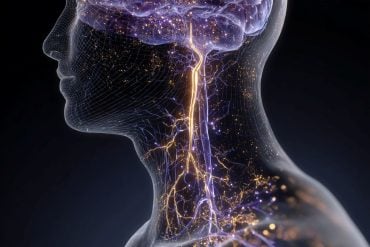Summary: A new study reveals that many self-identified incels reject employment not only due to mental health challenges, but as a deliberate expression of identity reinforced by online communities. By analyzing over 1,200 forum posts, researchers found that incel spaces often celebrate unemployment and isolation as signs of ideological purity, pressuring others to remain disengaged from work or education.
Those who pursue jobs or self-improvement are labeled “fakecels,” creating a social barrier to reintegration. Researchers argue that addressing this issue requires more than job programs—it demands interventions targeting identity, mental health, and online influence.
Key Facts:
- Ideological Unemployment: Many incels view joblessness as a core part of their identity.
- Online Reinforcement: Forum peer pressure discourages work and praises withdrawal.
- Support Needed: Solutions must combine job training, mental health care, and community outreach.
Source: McGill University
The critically acclaimed Netflix drama Adolescence has put a spotlight on the culture and ideas of incels (involuntary celibates), an online subculture of people (mostly male and heterosexual), who define themselves as unable to find a romantic or sexual partner, largely due to their perceived unattractiveness.
By analyzing exchanges on online incel forums, McGill University researchers have gained insights into the negative attitudes toward labour force participation held by many young men who identify as incels.

The researchers suggest that while some incels struggle with finding and retaining work because of various mental health challenges, for many members of the incel forum the choice not to work, study or train for a job is based on deeply held beliefs, and that these beliefs are often reinforced by other online forum participants.
This suggests there is a need for education and employment support programs that address not only the practical barriers to employment and study, but also the deep sense of alienation and social rejection felt by many in this group, the researchers said.
Unemployment as a commitment to incel identity
Recent surveys have shown that a disproportionally high percentage (up to 30 per cent) of incels are not in employment, education or training (NEET). This prompted researchers to analyze more than 1,200 online comments on employment on 171 discussion threads on a popular incel forum during two weeks in the fall of 2022.
“They use employment status to assess the degree of commitment of their peers to incel identity and often encourage other incels to embrace a life of unemployment and isolation.
“Many also share the belief that the absence of a female romantic partner makes working pointless,” said Eran Shor, a McGill sociologist and co-author of the study published in the journal Gender, Work & Organization.
High levels of internal policing help maintain inceldom
Members of the community participating in the discussions frequently encouraged others to retain their NEET status, something they praised as a confirming sign of “true” inceldom (a “truecel”).
Those who talked about trying to improve their situation by working or studying were regularly labelled “fakecels.”
Only about one-quarter of forum members suggested that they or others should try to improve their situation by studying or finding work.
“This peer pressure makes unemployment a badge of honour rather than a problem to be solved. These online spaces can reinforce harmful ideas and discourage members from seeking help or changing their situation.
“So, understanding how these beliefs form is the key to finding ways to support and engage with these marginalized young men,” said Shor.
Need for a multi-pronged approach to reintegrating incels into society
The researchers suggest that encouraging incels to consider changing will require a multi-layered approach. They said there is a need for education, job training and placement programs. Interventions that focus on mental health and online community engagement will also be important, they said.
Shor added, “Long-term change will require challenging harmful narratives about masculinity, relationships, and success. Instead of punishing incels or banning their communities outright, helping them reintegrate into society will be more effective.”
About this psychology research news
Author: Katherine Gombay
Source: McGill University
Contact: Katherine Gombay – McGill University
Image: The image is credited to Neuroscience News
Original Research: Open access.
““Don’t Work for Soyciety:” Involuntary Celibacy and Unemployment” by Eran Shor et al. Gender Work and Organization
Abstract
“Don’t Work for Soyciety:” Involuntary Celibacy and Unemployment
Surveys of involuntary celibates (“incels”) suggest that they tend to be not in education, employment or training (NEET) at disproportionately high rates.
However, it remains unclear whether and how being NEET is connected to incels’ ideology and life circumstances.
To investigate this, we conducted a qualitative thematic analysis of over a thousand comments posted on the main incel forum, incels.is.
We found that many users promoted unemployment and social disengagement as a form of retaliation against a society they feel has harmed them.
These users often encouraged other incels to embrace a life of isolation and used employment status as an assessment of commitment to the incel identity.
Users also reported experiences of discrimination, bullying, and feeling incompetent at workplaces and educational institutions.
We conclude that, for incels, being unemployed can be both an ideological stance and a consequence of their experienced or perceived marginalization.






